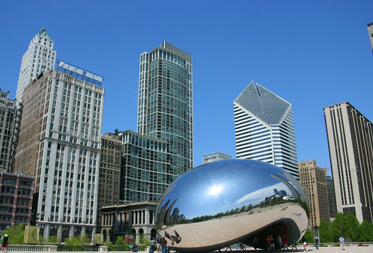Some may argue that the journey to residency for Foreign Medical Students is equally challenging to that of American medical students, but this opinion lacks acknowledgement of the challenges Foreign Medical Students face when transitioning to a residency along with a new country.
While certain struggles, such as communication and culture are similar throughout time, foreign medical students also face hurdles such as constant political change. For instance, executive orders introducing travel bans can complicate visa processes. Many hurdles are well-beyond the control of the student, which is why it is important to develop coping strategies to maintain focus while navigating a medical system that can hold biases against foreign students.
Potential Struggles for FMGs
- 1. Communication: The most obvious struggle for Foreign Medical Graduates is communication barriers. While FMGs are required to pass a language proficiency test such as the TOEFL (Test of English as a Foreign Language) in order to obtain ECFMG Certification, passing this test does not eliminate all language struggles. In fact, an acceptable score on the TOEFL means a student is fluent and capable of conversation professionally in their profession, but they still may struggle with the language nuances developed among native speakers. This can be frustrating for students, professionals and patients. If the student is not careful to clarify any misunderstandings, this can lead to medical errors and unacceptable mistakes. As a result, communication can be a big struggle for FMGs.
- 2. Culture: A foreign country may have very different cultural norms than the cultural norms of America, which is not bad but can present challenges during interviews and professional processes. For instance, one country may find assertiveness to be a rude attribute, while it may be considered a strength in an American interview. Handshakes may be perceived differently in other areas of the world. The details of these differences are not as important as the fact that they cause added stress for FMGs in uncertainty and newness.
- 3. Team Work: Team work is essential in the healthcare field, and it can be difficult to insert oneself into a team when presented with communication and cultural differences. Additionally, once in a team setting, it is easy to fade into the background and not be a quality participant in the team. Not only must Foreign Medical Students have the courage to join teams, but they must conquer their fears of making communication and cultural mistakes in order to become a valued team member.
- 4. Logistics: On top of communication and culture, which can greatly impact one’s ability to engage in team work, FMGs must ensure that they are handling all the details of their transition to another country. As mentioned previously, things like visas can become complicated by political agendas. In addition, it can be difficult to develop a strategy for applying to residencies because it often involves a careful balance of applying to residencies that are known to accept FMGs without neglecting the residencies a FMG is truly passionate about. Organization, strategy, and perseverance is integral during this time, but it adds stress that the traditional medical student from America does not face.
Coping Strategies
There are many other struggles FMGs face, and many of them are unique to the student and their home country, but inherent in all of these struggles is increased stress that can negatively impact the outcomes of residency placement. That is why FMGs must develop coping strategies to handle stress and keep their minds focused on the goal.
- 1. Personal Resources: One of the most important strengths that a FMG can develop is personal resources. These are skills and actions that one takes in order to avoid fatigue and burnout, which can create an abrupt end to residency pursuits. For example, a FMG may practice breathing techniques, yoga or meditation in order to center himself or herself on his goals. FMGs may need to take personal time to reconnect with their own lives, which may seem displaced in a different country. Music can be a valuable reminder of home. There are endless possibilities when it comes to personal resources, and it is important that FMGs identify these resources prior to the time when they are needed. In this way, they will be emotionally prepared for stressful transitions.
- 2. Social Support: Alternatively, social support can be as essential as personal resources. It is very easy to hide from social interactions when faced with communication and cultural differences, but this actually increases stress for the inevitable social interactions that will need to take place for successful residency placement. Orientation and acculturation programs are available to assist FMGs in mixing American culture with that of their own, so they can achieve residency placement success without discarding their own traditions completely.
It is essential to FMGs that they remember their own cultural identities while blending that with American culture in order to provide effective care that is in line with American Medical School standards. It is a stressful challenge to maintain both the past identity of a home country while integrating that with American culture. This is why FMGs must focus on coping strategies, which will become easy to implement when needed if they are developed in preparation to stressors instead of on an as-needed basis.







